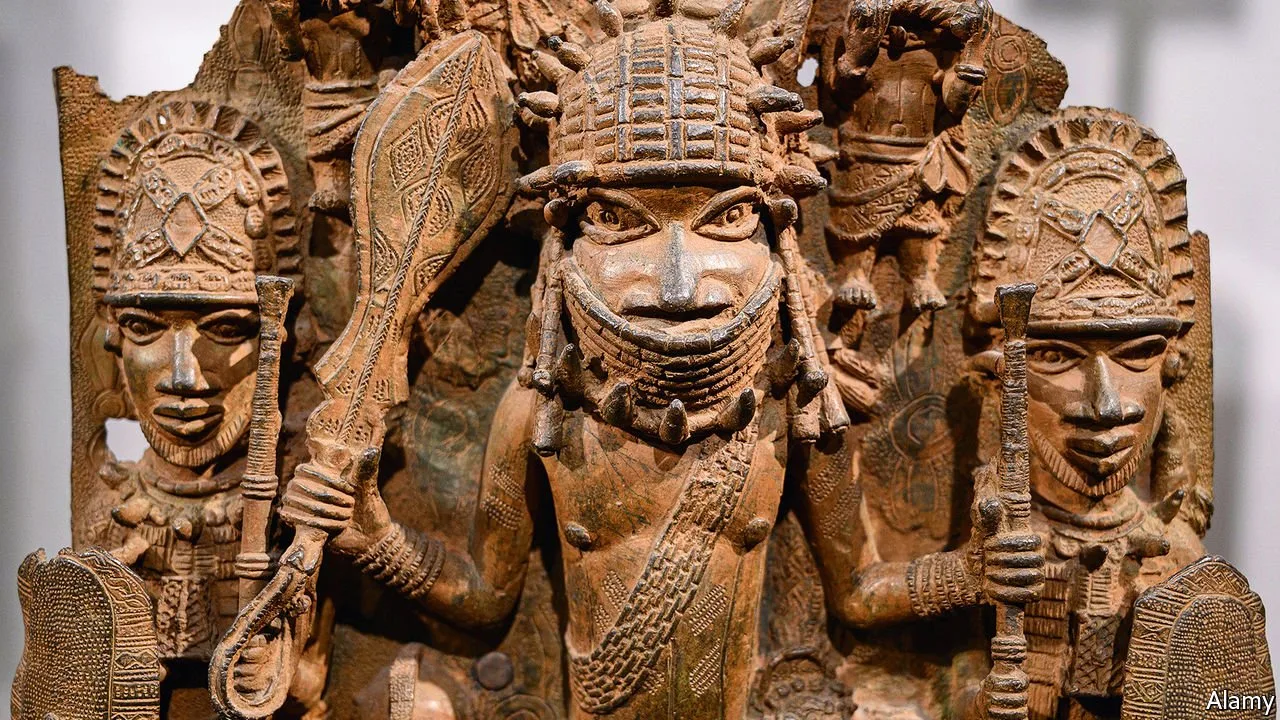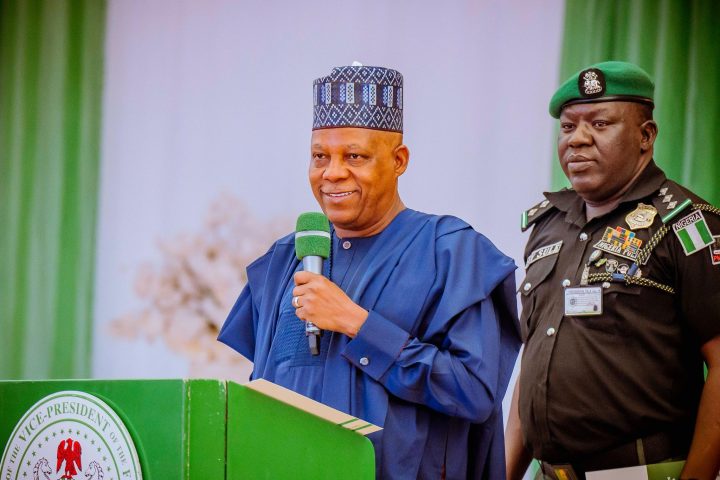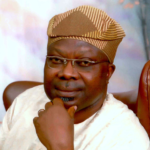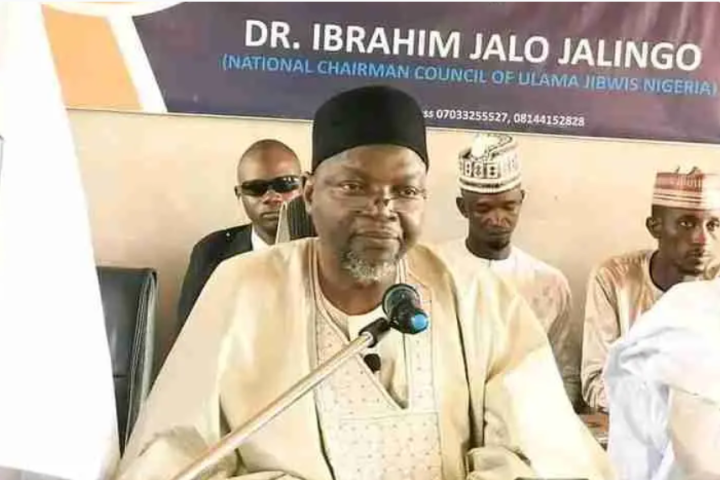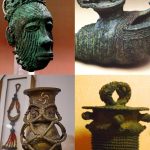The return of the Benin Bronzes, looted by British colonial forces in 1897, has become a rallying cry for Nigeria’s cultural restitution movement.
Despite promises from Western institutions to return the artifacts, the process has been slow and piecemeal, raising questions about the sincerity of these efforts. As Nigeria pushes for the full return of its stolen heritage, the international community must confront the legacy of colonial exploitation and the moral obligation to restore cultural dignity.
Join our WhatsApp ChannelThe Hypocrisy of Western Museums: Why Not a Full Return?
Recently, the Netherlands announced plans to return 119 artefacts to Nigeria, yet they have stated this will occur “later this year,” raising questions about the delay. If these artifacts were actually stolen, why are some Western institutions still reluctant to return them?
During Colonial Rule
In February 1897, British forces invaded the Kingdom of Benin, located in present-day Nigeria, as part of a punitive expedition aimed at subduing local resistance to British colonial ambitions. This invasion resulted in the looting of thousands of priceless artifacts from the royal palace and other sites, with estimates ranging from 3,000 to 10,000 objects taken, including the renowned Benin Bronzes made of brass and ivory. These artefacts were not merely art pieces; they held deep cultural and spiritual significance for the Edo people.
READ ALSO: Will Benin Bronze Finally Find Its Way Home To Nigeria From The British Museum?
Their removal has had lasting effects on Nigerian identity and heritage, depriving generations of access to their historical artefacts while Western museums profit from their display. After their seizure, these artefacts were transported to various Western countries, including Germany, the UK, France, Belgium, and the US, where they were often sold or exhibited in museums.
Legality and Morality of Retaining Such Items in Western Institutions
Over the years, this distribution has sparked debates about the legality and morality of retaining such items in Western institutions. In March 2002, the Benin Royal Palace and Nigeria’s Federal Ministry of Information and Culture formally requested that “all the cultural property belonging to the Oba of Benin illegally taken away by the British in 1897 should be returned to the rightful owner, the Oba of Benin.”
READ ALSO: Germany To Return 7,000 Benin Artefacts To Nigeria In October
In the context of the Netherlands’ decision to return 119 Benin Bronzes to Nigeria, as well as similar actions by the US and Germany, Dutch Minister of Education, Culture, and Science Eppo Bruins stated, “With this return, we are contributing to the redress of a historical injustice that is still felt today.” His statement suggests that Western nations may now be acknowledging that their actions were wrong.
READ ALSO: Return What You Stole From Africa, Chimamanda Adichie Tells Europe
Although UNESCO has declared that “no culture is a hermetically sealed entity,” it assists states in repatriating cultural property because “the men and women of these countries have the right to recover these cultural assets which are part of their being.” However, notwithstanding recognising the illegality of past actions, many Western nations still believe they can preserve these artefacts better than their rightful owners, justifying their continued retention in Western museums.
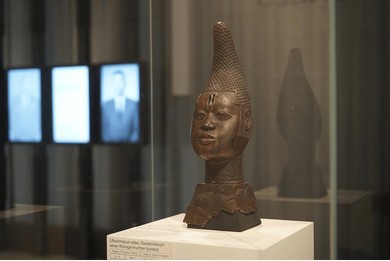
The Partial Returns and Delayed Promises
Some countries have made efforts to return looted Benin artefacts, but these returns have often been partial and incomplete. For instance, Germany returned 22 Benin Bronzes in December 2022 but still retains a significant number of these artefacts in its collections. Similarly, the United States, through the Smithsonian Institution, returned 29 artefacts in October 2022.
While making strides in restitution efforts, France returned 26 artefacts to the Republic of Benin in November 2021 but has yet to return any to Nigeria, where the Benin Bronzes originate. In the United Kingdom, institutions such as the Horniman Museum and Cambridge University have returned only a few items to Nigeria.
This piecemeal approach raises critical questions about the sincerity and commitment of Western institutions to addressing historical injustices fully. If these artefacts are widely acknowledged to belong to Nigeria, why are returns happening in bits and pieces?
List of Countries That Refuse to Return Artefacts
On the other hand, the British Museum holds over 900 Benin Bronzes but has outright refused to repatriate them, instead offering only “long-term loans” to Nigeria. This stance has been perceived as an insult, as many believe these artefacts rightfully belong to Nigeria and should be returned permanently.
In addition to the British Museum’s position, Belgium has made promises that it will return looted artifacts but still retains thousands of African cultural objects taken during colonial times. Most recently, despite Netherlands expressing intentions to return looted artifacts, she vaguely stated that this will happen “later this year.”
Other Western institutions continue to delay the return of artifacts and often set conditions that question Nigeria’s ability to care for these significant cultural items. Former British Museum director Hartwig Fischer once defended the refusal to return the Benin Bronzes. He suggests that Western museums provide “the best possible conditions for conservation and accessibility.” This reflects the broader skepticism about Nigeria’s capacity to manage its heritage. Such skepticism undermines Nigeria’s cultural sovereignty and perpetuates a narrative of colonial superiority.
It is then fair to say that the narrative surrounding the Benin Bronzes serves as a poignant reminder of the broader themes of colonial exploitation and cultural heritage preservation. The ongoing battle for their return highlights not only historical injustices but also the need for accountability in addressing the legacies of colonialism.
Call To Action
The fragmented nature of these restitutions suggests lingering hesitation among some museums and governments, rooted in legal complexities, bureaucratic hurdles, and perhaps an unwillingness to part with valuable collections. Advocates for full restitution argue that a comprehensive and unified effort is necessary to truly restore Nigeria’s cultural heritage and rectify the injustices of colonial-era looting.
The call for artefact repatriation, especially the Benin Bronzes, necessitates a robust preservation plan to counter doubts about Nigeria’s stewardship. As the African adage goes, “If you carelessly mishandle your cup, your neighbour will use it to pack ashes.” Nigeria’s ability to preserve the returned artifacts will influence how other nations perceive their significance and determine whether they return the remaining items.
While advocating for international laws to enforce repatriation, Nigeria must also invest in proper museum facilities, such as the Edo Museum of West African Art (EMOWAA), to enhance security to prevent re-looting and promote public education on the artifacts’ value. Addressing Western museums’ concerns requires demonstrating a commitment to preservation. A proactive approach will secure returned artifacts and foster national pride and cultural appreciation.
On the other hand, Western museums must acknowledge their moral and historical obligation to return the Benin Bronzes and other looted artefacts without conditions. The fight for repatriation is not merely about returning objects; it is fundamentally about reclaiming Nigeria’s cultural dignity and identity.
Dr Mbamalu, a Jefferson Journalism Fellow, Member of the Nigerian Guild of Editors (NGE) and Communications/Media Consultant , is the Publisher of Prime Business Africa (PBA).
Dr. Marcel Mbamalu is a communication scholar, journalist and entrepreneur. He holds a Ph.D in Mass Communication from the University of Nigeria, Nsukka and is the Chief Executive Officer Newstide Publications, the publishers of Prime Business Africa.
A seasoned journalist, he horned his journalism skills at The Guardian Newspaper, rising to the position of News Editor at the flagship of the Nigerian press. He has garnered multidisciplinary experience in marketing communication, public relations and media research, helping clients to deliver bespoke campaigns within Nigeria and across Africa.
He has built an expansive network in the media and has served as a media trainer for World Health Organisation (WHO) at various times in Northeast Nigeria. He has attended numerous media trainings, including the Bloomberg Financial Journalism Training and Reuters/AfDB training on Effective Coverage of Infrastructural Development of Africa.
A versatile media expert, he won the Jefferson Fellowship in 2023 as the sole Africa representative on the program. Dr Mbamalu was part of a global media team that covered the 2020 United State’s Presidential election. As Africa's sole representative in the 2023 Jefferson Fellowships, Dr Mbamalu was selected to tour the United States and Asia (Japan and Hong Kong) as part of a 12-man global team of journalists on a travel grant to report on inclusion, income gaps and migration issues between the US and Asia.

